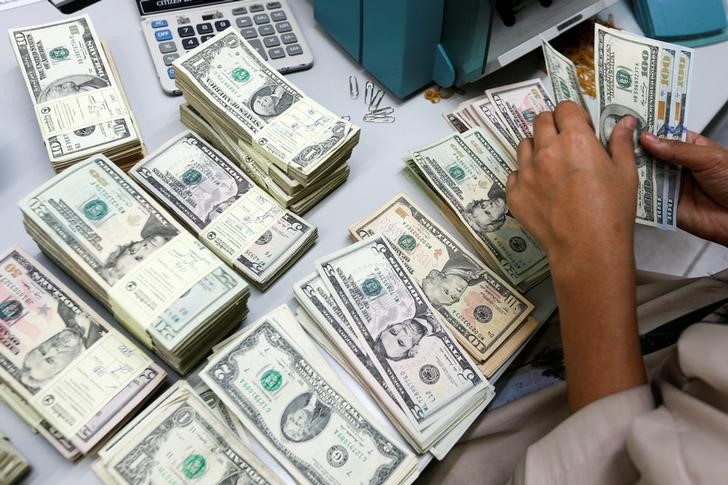By Gertrude Chavez-Dreyfuss
NEW YORK (Reuters) - The dollar dropped to a six-week low against a basket of currencies on Tuesday, pressured by expectations the Federal Reserve would delay raising interest rates after recent soft U.S. economic data.
The U.S. currency also slid to a three-week trough against the yen, as the Japanese government approved a largely expected set of stimulus measures. The dollar fell to its lowest in six weeks against the euro.
The greenback extended losses after U.S. data showed little inflation. A key inflation measure - the core personal consumption expenditure index - grew by a modest 0.1 percent in June, which kept the annual inflation rate unchanged at 0.9 percent.
On Friday, the U.S. government reported tepid gross domestic product growth for the second quarter.
"The lack of a clear pick-up in inflation will allow the Fed to delay the next rate hike until it has seen more concrete signs of a rebound in GDP growth, which all but rules out a September rate hike," said Steve Murphy, U.S. economist at Capital Economics in Toronto.
In mid-morning trading, the dollar index fell 0.6 percent to 95.165 (DXY), after earlier sliding to 95.151, the lowest level since June 24.
Fed funds futures on Monday suggested a 21 percent probability the U.S. central bank will hike rates next month, according to CME Group's FedWatch.
Against the yen, the dollar declined 1.2 percent to 101.22 yen
Japanese Prime Minister Shinzo Abe's Cabinet approved 13.5 trillion yen ($132 billion) in fiscal measures on Tuesday. Instead of falling, the yen rallied because the stimulus package was in line with expectations and followed easing moves by the Bank of Japan that were perceived as less aggressive than anticipated.
"Japanese policymakers now face a serious dilemma as the (dollar/yen) pair has unwound most of the gains of the prior three weeks and now stands perilously close to the 100.00 level," said Boris Schlossberg, managing director of FX strategy at BK Asset Management in New York.
"Japanese authorities may be forced to once again consider intervention although prior episodes have proved futile."
The euro, meanwhile, rose to a six-week high against the dollar and was last up 0.5 percent at $1.1212
Also on Tuesday, the Reserve Bank of Australia cut interest rates by a quarter percentage point, but the Australian dollar rallied. The Aussie currency was last up 1.2 percent at U.S. $0.7633

BK's Schlossberg said traders viewed the move as "one and done" by the RBA.